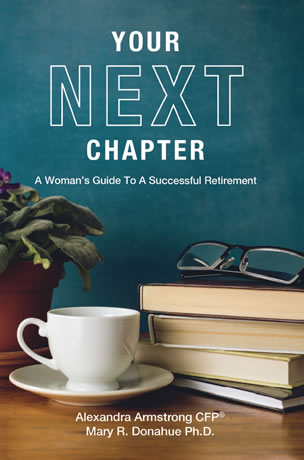How the Pandemic has Affected Housing Choices for Retirees
Housing is one of the major expenses everyone has. Prior to retirement, most people commuted to and from work and were in their homes only in the evenings and on weekends. All this changed with the coronavirus. No more going to work every day. Instead, you probably were in your house all day and night. In many cases, you weren’t alone, and you had full time company--your spouse, your children, grandchildren, parents—a lot of togetherness.
People have compared the current situation to how retirees live—that is no longer going to the office and being full time at home. However it’s different because retirees were free to come and go from their homes—traveling, volunteering, exercising—whatever they wanted to do whenever they wanted to do it. The coronavirus required/encouraged everyone to stay and work from home. This isn’t easy if you have children at home or your space is limited. As a result, the coronavirus is changing the way people think about where they want to live both now and when they retire. Those about to retire who were enthusiastic about living in the city and downsizing to an apartment are rethinking their options. Now they like the idea of having a larger home--one they can spread out into—with multiple rooms—and a yard where they can social distance and see friends.
While we hope that we won’t always have to live the way we are living today, the “new normal” certainly will be different. Employers and employees will realize in many cases people can work home at least part of the time effectively. Recent retirees may not be required to quit their job cold turkey. Now they may be able to work part time from home. Instead of traveling to give a speech, make a presentation or attend a meeting, they can communicate effectively via Zoom.
In the past, retirees may have chosen to age in place in order to stay close to friends and family. Others may have decided to move to a warmer climate either full or part time. Before the coronavirus, it was easy to jump on a plane to see children and grandchildren. Now the retiree who is in the greatest “at risk” age group is afraid of flying for fear of infection. Even the alternative of driving long distances and staying in hotels no longer holds the appeal it once did. As one retiree remarked to me “Thank goodness we traveled when we could”.
Many retirees choose to move to a retirement community, either in their same area or elsewhere. They like the idea that someone else would do the cooking and cleaning. They have a built in social life as well as easy access to medical care. However, during the pandemic, most retirement communities locked down and the residents weren’t allowed to leave the grounds for months on end. Gyms were closed, meals were delivered to your apartment, and visitors weren’t allowed. Obviously, this was the right thing for management to do to protect the residents, but under these circumstances you were robbed of your freedom of choice which is a very difficult concept for most to accept.
Prior to the pandemic, renting or buying a recreational vehicle (RV) when you retired appealed to a limited number of retirees. However, this has changed with the pandemic. According to one survey, 1 in four Americans intends to take a trip in a recreational vehicle in the next twelve months and would consider renting or buying a recreational vehicle. The appeal is that you can travel at your own pace, and don’t have to worry about leaving your RV to eat, go to the bathroom or to sleep. You have control of when and where you go and don’t have to worry about infection—although finding a place to park the RV at night will be harder than in the past due to increased demand!
One might argue that the pandemic has changed behavior short term, but that when an effective vaccine is found, people will go back to their old ways. I doubt that will be true—particularly for retirees? Who would have thought just five short months ago that wearing masks would be commonplace, that social distancing would be mandated, that you would think twice before going into a store to buy something. This is particularly true for retirees who are over the age 65 and are more vulnerable to the severe cases of the virus. When we lick this virus, who is to say that another one might not rear its ugly head?
We think the information we provided in chapter 7 on Housing in “Your Next Chapter: A Woman’s Guide To A Successful Retirement” still is relevant to women retiring. However the pandemic shows how flexible we all must be. There is not one answer that works for everyone. You have to make your own choices based on your own desires and concerns..jpeg)
